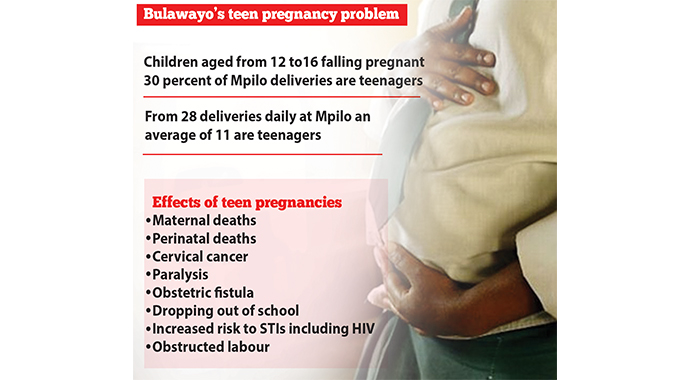Education Amendment Act shot in the arm for girl child

Ivy Chiwaya
THE recently gazetted Education Amendment Act says no pupil shall be excluded from school on the basis of pregnancy.
The Act came as a relief to pregnant school-going girls who over the years have been subjected to scorn, abuse, rejection and discrimination by members of their communities.
Being pregnant as a pupil is viewed in many communities as unforgivable delinquent behaviour. Hopefully, the Act will encourage more girls to keep their babies thereby reducing the rate of abortions, baby dumping and infanticide previously experienced. Statistics show that 80 percent of pregnant school-going girls are lucky to get a second chance to education at private institutions. Most of them excel at their studies despite the setback.
Expectantly, the new Act will see a decrease in school dropouts, particularly in rural areas where the girl child is more vulnerable. It will also be a relief to pregnant school girls who over the years, for fear of stigmatisation, would be sent away to stay with distant relatives thereby compromising their already fragile lives.
Meanwhile, it is common for pregnant women to experience hormonal changes which might result in mood swings, vomiting, spitting and fatigue making it difficult for girls to concentrate in class. All these conditions may also have an adverse effect on some classmates. Imagine one vomiting and spitting continuously while in class — it can be nauseating. Teachers might also be affected by this behavioural change. The onus will be on school authorities and teachers to counsel all pupils and encourage patience and tolerance.
It will be even more challenging in boarding schools where the affected girls will be far away from their parents. Social interaction between the pregnant girls and their schoolmates may no longer be at the same wavelength. There might be pressure for the pregnant adolescents to behave like adults while also not being seen to be influencing their peers to indulge in premature sex. Girls must be allowed to wear special maternity uniforms in order for them to be comfortable.
Gone are the days when parents could confidently vouch for their daughters when it came to pre-marital sex, therefore, we should all unite against stigma and discrimination against teenage pregnancies and give girls a second chance at education. The purpose of the Education Amendment Act is to give effect to the constitutional right to education and specify its underpinning principles. The State has the duty to provide learners with resources and facilities for learning.
But there’s a condition. The right is subject to the availability of resources. Essentially and technically, the Government could delay the realisation of the right on the basis of not having the required funds. The Act makes it clear that attending State funded education isn’t optional, but compulsory. It is an offence for any parent or guardian to deprive a child of education paid for by the State. The law also underscores that schools may not expel pupils for failing to pay fees.
This also applies to privately-owned schools that aren’t State funded. So, no learner can be expelled (legally) in light of the amendment, even though private schools need to cover their costs. A 2019 report by the Ministry of Primary and Secondary Education noted the prevalence of school dropouts as a result of pregnancy or early marriages. There are also concerns about the increasing cases of teenage pregnancy and potential school dropouts in the aftermath of Covid-19. The Act will now ensure that pregnant girls will have access to education.
Going forward, there’s need to foster a change of attitude among teachers, pupils and parents. It’s one thing to have a right to remain in school while pregnant, and another to have an environment that supports and upholds such a right. Change of attitude cannot be legislated.
The implementation still relies on the Government, working in partnership with organisations such as PLAN International Zimbabwe and CAMFED, to foster behaviour change, inclusion and tolerance in communities. Access to sexual and reproductive health services should be prioritised. Section 4 of the Act declares that the State must ensure the provision of sanitary wear and other menstrual health facilities. These include water and sanitation in all schools.
This is a remarkable improvement. The previous law was silent on this fundamental right. Th e integration of the sexual reproductive and health rights of girls comes at a convenient time as Unicef Zimbabwe and its partners are working on these issues. Further, the amendment provides for the appointment of sexual and reproductive health personnel at every school. T ere’s no regulation specifying who qualifies to be appointed to this role. It’s unclear whether teachers could qualify. Training them would have budgetary implications for the government.
In many rural schools, clinics or health facilities are not easily accessible. The Government must take practical steps to move from rhetoric to reality.
In principle, the Education Amendment Act is the first step on a journey of a million miles. Its success depends on the implementation measures and approaches from state and nonstate actors.
Ivy Chiwaya is a Lower Six pupil at Empandeni High School










Comments